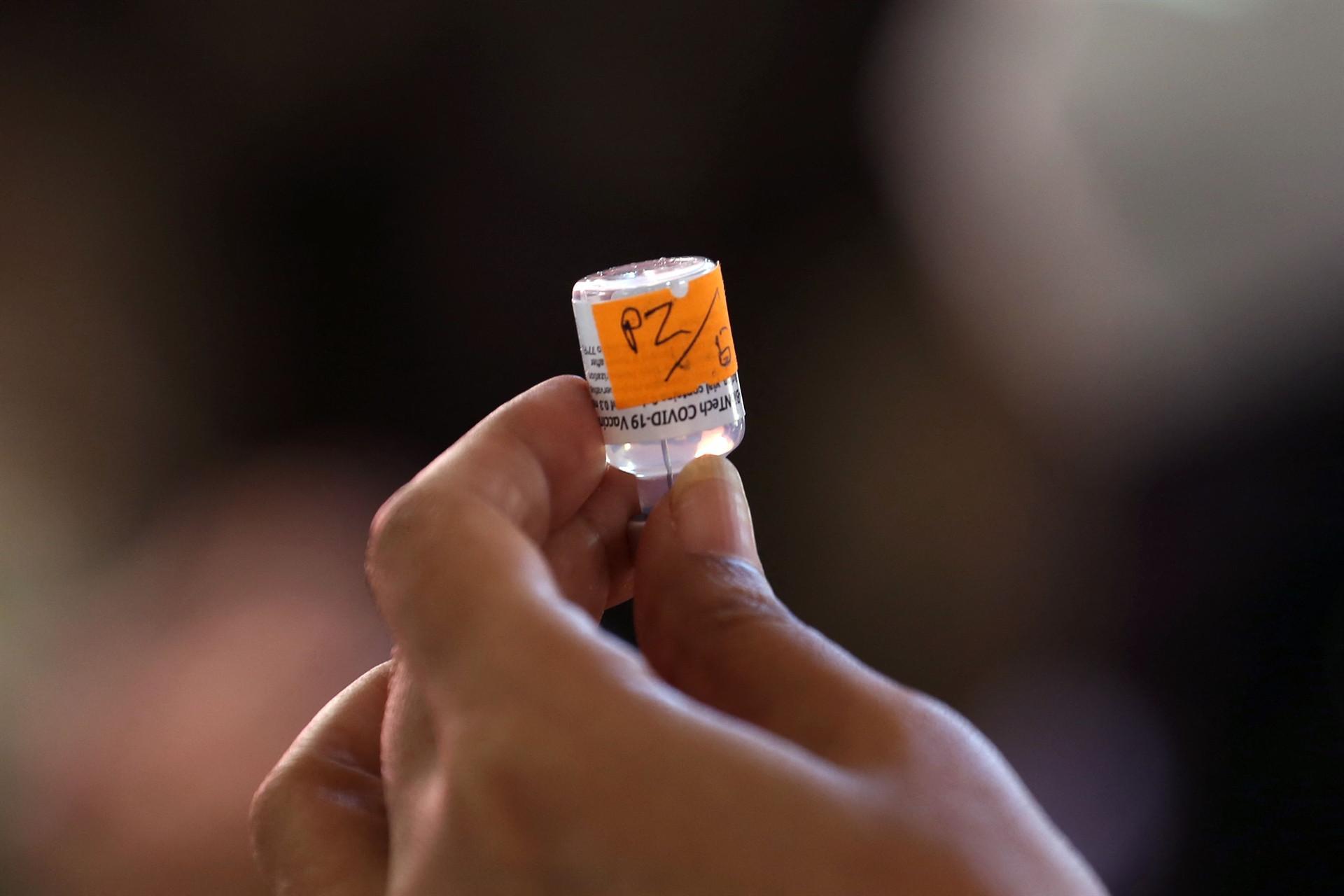
Teachers and school staff should be among the groups prioritized for COVID-19 vaccinations so that schools in Europe and Central Asia can stay open, the World Health Organization (WHO) and Unicef said on Aug. 30.
Measures to ensure that schools can stay open throughout the pandemic "include offering teachers and other school staff the COVID-19 vaccine as part of target population groups in national vaccination plans," the UN agencies wrote in a statement.
The recommendation, already made by a group of WHO experts in November 2020 before the vaccination roll-out, should be done "while ensuring vaccination of vulnerable populations," the statement said.
As schools reopen after the summer holidays, the agencies said it was "vital that classroom-based learning continue uninterrupted," despite the spread of the more contagious Delta variant of the virus.
"This is of paramount importance for children’s education, mental health and social skills, for schools to help equip our children to be happy and productive members of society," the director of the WHO European region, Hans Kluge, said in the statement.
"The pandemic has caused the most catastrophic disruption to education in history," he added.
The agencies urged countries to vaccinate children over the age of 12 who have underlying medical conditions that put them at greater risk of severe COVID-19 disease.
It also recalled the importance of measures to improve the school environment during the pandemic, including better ventilation, smaller class sizes, social distancing and regular COVID testing for children and staff.
According to the WHO’s recommendations published in early July, testing of children in risk groups who display COVID-19 symptoms should be a priority.
Thousands protest in Athens over vaccine rule for health workers
Around 7,000 people protested in central Athens on Aug. 29 against a new rule obliging health workers to get vaccinated against COVID-19, police said.
The rule change, which came into effect on Sept. 1 requires all personnel working in hospitals to get vaccinated.
The demonstrators waved Greek flags and brandished placards with such messages as "We are not against vaccines, but against fascism" and "Long live democracy".
"It's amazing that I'm put on sick leave because I refuse to be vaccinated when for months I have helped to contain the epidemic, I have worked in very difficult conditions ", said Christos Bakakios, an ambulance driver who joined the protest.
A nurse, who gave her name as Lina, said "the Greek health system will collapse if they put all the caregivers who refuse to be vaccinated on furlough".
"The hospitals are already overcrowded. That would make no sense," she added.
Greece's government on Tuesday announced an array of new restrictions and the end, next month, of free testing for those who remain unjabbed against COVID-19 in an effort to boost vaccination rates.
The government took the measures in part to encourage people to get vaccinated, as the contagious Delta variant of COVID-19 takes hold.
At the moment 99 percent of the badly ill coronavirus patients, those intubated in hospital, are people who have not been vaccinated. Retirement home workers have been obliged to get vaccinated since mid-August. Ten employees at a home in Volos, in the center of the country, were recently suspended from work.
New Zealand reports first death linked to Pfizer vaccine
New Zealand reported its first recorded death linked to U.S. drugmaker Pfizer's COVID-19 vaccine, the health ministry said on Aug. 30, after a woman suffered a rare side effect leading to inflammation of her heart muscle.
The news of the death comes as the country battles an outbreak of the Delta variant after nearly six months of being virus free. It followed a review by an independent panel monitoring the safety of the vaccines.
"This is the first case in New Zealand where a death in the days following vaccination has been linked to the Pfizer COVID-19 vaccine," the ministry said in a statement, without giving the woman's age.
The vaccine monitoring panel attributed the death to myocarditis, a rare, but known, side effect of the Pfizer vaccine, the ministry added.
Myocarditis is an inflammation of the heart muscle that can limit the organ's ability to pump blood and can cause changes in heartbeat rhythms.
In response, Pfizer said it? recognized there could be rare reports of myocarditis after vaccinations, but such side effects were extremely rare.
"Pfizer takes adverse events that are potentially associated with our vaccine very seriously," it told Reuters.
"We closely monitor all such events and collect relevant information to share with worldwide regulatory authorities."
The health ministry said other medical issues at the same time could have influenced the outcome after vaccination.
But the vaccine's benefit outstripped risks from side effects, it added.
"The benefits of vaccination with the Pfizer COVID-19 vaccine continue to greatly outweigh the risk of both COVID-19 infection and vaccine side effects, including myocarditis."
New Zealand has provisionally approved use of the Pfizer/BioNTech, Janssen and AstraZeneca vaccines, but only the Pfizer-produced vaccine has been approved for rollout to the public.
Aug.30's 53 new cases took New Zealand's tally of infections in the current outbreak to 562, amid a nationwide lockdown enforced this month to limit the spread of the Delta variant.